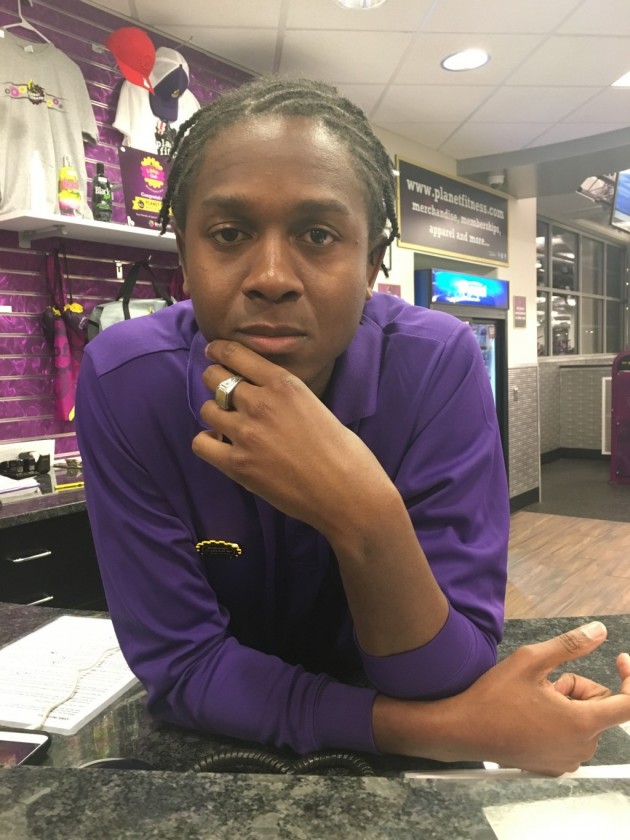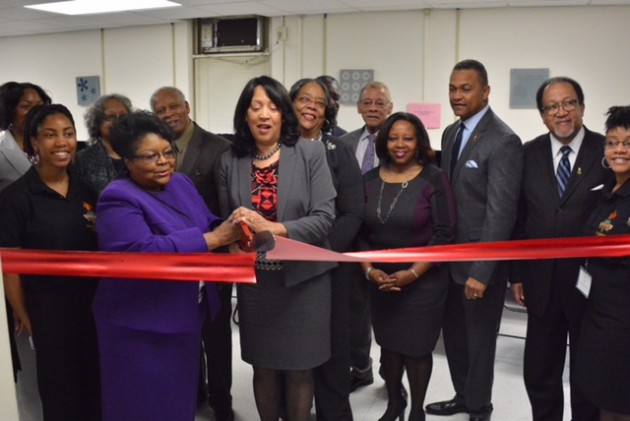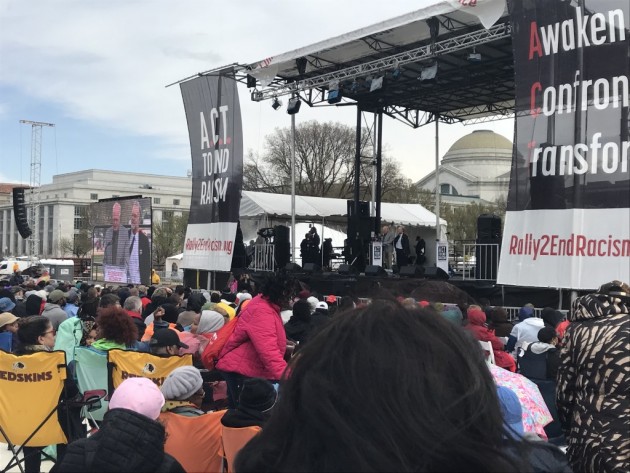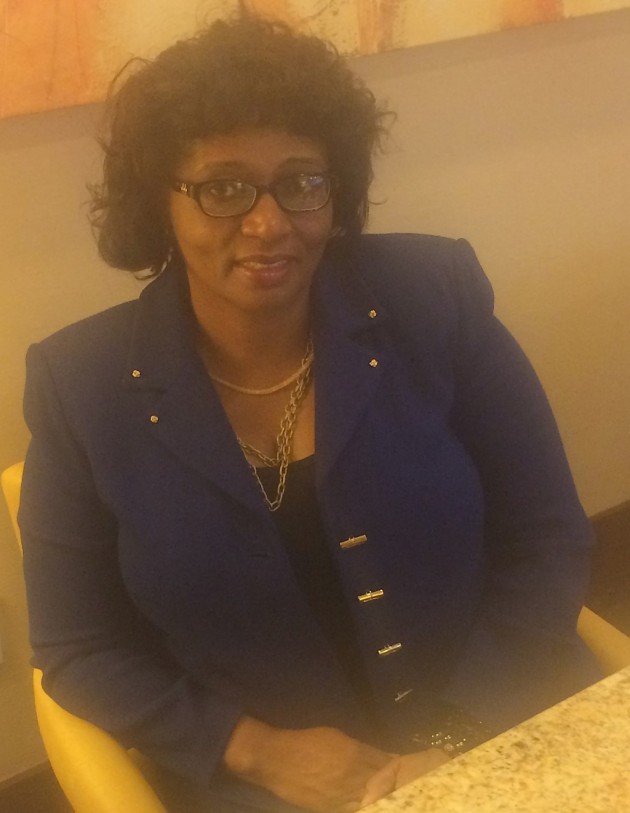Against the backdrop of recent events surrounding travel bans, refugee crises and conflicts, the connections between worldwide peace, education, and justice were discussed when American University’s School of Education hosted a Global Education Forum on Conflict, Justice, & Education recently in the campus’s Spring Valley Building.

Photo by Levi Poe: Jeanette Soon-Ludes, the director of scholarships and programs at the Asian Pacific Islander
American Scholarship Fund gives a presentation at the forum.
The forum, hosted by the school’s International Training/Education Program (ITEP), aimed to identify pressing issues in global education and their relationship with worldwide peace and justice.
Open to the public, the forum’s audience encompassed members of the greater D.C. community as well as individuals who call a plethora of foreign nations their home. Four expert panelists from backgrounds in education and community outreach shared their anecdotes and research in a collective effort to foster conversation around the concept of justice through the lens of peace education and its application worldwide.
“The intersectionality of those three constructs is more important now than ever before,” remarked Cheryl Holcomb-McCoy, the Dean of American University’s School of Education, referring to peace, education, and justice as individual constructs.
McCoy, remarked that “justice is so timely, now,” given the recent political conflict and crises plaguing the United States and foreign nations, from travel bans to refugee crises. Speakers tackled issues such as the “youth bulge,” a term used to describe the growing demographic of youth worldwide, the role of higher education in the success of youth, the path to justice through peace education, and accountability of institutions to strive for justice.
Julia Paulson, senior lecturer in education at the University of Bristol and featured panelist emphasized the need to define peace as a process that depends upon justice.
“I think that often, peace education programs will just say peace is here, now, because conflict is over,” said Paulson in an interview after the program.
She explained the concepts of negative peace, in which peace is achieved in the absence of direct violence, and “positive peace,” which “has to be more than just a lack of physical violence…[it] has to require justice…[and] address structural forms of violence.”
A 2010 report from the Friends Committee on National Legislation disclosed that as a whole, the world spends only $1 on conflict prevention for every $1,885 that it spends on military budgets. Paulson illustrated that a global commitment to peace without implementing the definition of positive peace is more likely to fail. “[It] leaves no space to think about those inequalities that still exist,” she said.
Jeanette Soon-Ludes, the director of scholarships and programs at the Asian Pacific Islander American Scholarship Fund, elaborated on the issue of worldwide institutional accountability.
As a native Hawaiian, Soon-Ludes defined the concept of institutional accountability as it relates to indigenous populations as “demonstrating a willingness to not go for money above what indigenous people are saying.”
She cited the example of the University of Hawaii ignoring pleads from the indigenous community to not build a telescope atop a sacred mountain, the construction of which is “threatening the water that sits beneath the mountain…[and is] threatening an entire worldview.” “I think…there are so many ways that institutions say that they’re accountable but they’re really not,” said Soon-Ludes.
American University’s ITEP holds several Global Education Forums each year.

Photo by Levi Poe: Broguen Whetstone (left) and Sara Yzaguirre (right), discuss topics addressed during the
forum and the application of these ideas moving forward.
Broguen Whetstone, a graduate assistant for and first-year student in ITEP said the forums are significant for what they highlight. “It’s a really great chance for students to interact with experts in the field and see what they are saying.”
In relation to the recent U.S.-based political turbulence, Whetstone notes that her peers and her have been discussing it continuously since November.
”She explains that the current political climate in the U.S. and abroad has required a shift “back to basics…When I was living abroad, a lot of the focus was on globalization and global citizenship…how [to] make people aware of that, but now the language is…do people even care?” Grateful for the exposure the program has provided her, Whetstone declares that “even if you never meet somebody from another country, being aware of diversity and knowing how to talk to different people [is] inherently valuable.”





